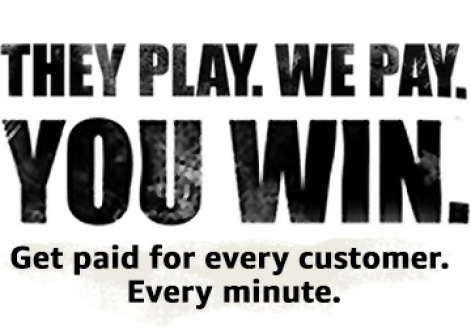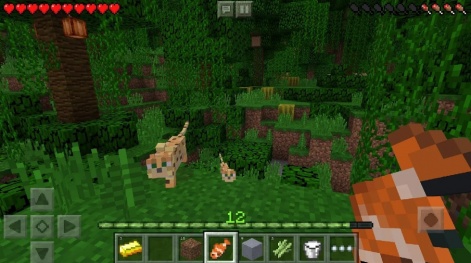Amazon set out a bold vision in August 2015 when it unveiled its Underground program.
The initiative, designed to strengthen the position of the Android-based Amazon Appstore, offered developers a new way to monetise by paying them $0.002 for every minute their games were played.
This held most value to consumers in premium games such as Monument Valley, allowing them to freely play games for which they would need to pay in other app stores.
However, Amazon Underground versions of a select few free-to-play games were also available, allowing in-app purchases to be made free of charge.
It was part of a long-term strategy with bold ambitions to change the way mobile developers made games, but two years on Amazon has announced that Underground will no longer feature on the Amazon Appstore as of Summer 2017, with the program officially ending in 2019.
So how is the mobile games industry reacting to the news, and what does it mean for the future of disruptive business models in mobile gaming? To find out, we asked our Mobile Mavens:
- Are you surprised about Amazon's closure of its Underground program?
- Can you see anything in the foreseeable future disrupting the F2P paradigm?

Founder and CEO of Chorus Worldwide, a publisher for Western mobile developers seeking success in the Asian markets, Shintaro has over 20 years' experience within the gaming industry.
He has worked in various roles from game production, localisation, marketing and business development at companies such as EA, SCEE, Rare and Microsoft.
Underground’s closure doesn’t mean that the model itself is wrong, for either developers or players.
It might just be that Amazon wasn’t the right provider for this, or it might be that they pull this into their Prime offering in future.
Japan’s major telcos (AU, Softbank, DoCoMo) provide similar subscription services and they definitely add value to all concerned.
As I see it, Underground and these other services aren’t about disrupting the F2P paradigm, so much as giving premium games an opportunity to reach new players and be monetisable.

I do think something similar to Underground will re-emerge, possibly at a platform level (Phil Spencer’s interview in the The Guardian is timely).
The current economics of mobile gaming suggests that if a game’s LTV < its potential paid CPA, the game doesn’t have any worth, or that there isn’t a market for it. That isn’t true.
It just means that the monetisation and discoverability solutions for those types of games will need to be different, and any new subscription service will not only need to have the tonnage of content to offer variety, but also a laser-like ability to showcase the right content to the right players.
Underground’s closure creates a vacuum. And we all know what nature abhors...
On mobile, F2P dominates with few exceptions. Those exceptions are:
- Casual ad-supported games (Flappy Bird) that can live on a high volume, low LTV model. Doesn’t apply to Underground, of course.
- Very strong brands that bring in users from the AAA console space, who are willing to pay up-front for a game (Minecraft: Pocket Edition, Sonic The Hedgehog). They didn’t need Underground.

- Niche games supporting a group of loyal users (Goat Simulator). Ditto on Underground.
- Titles for very young children where ads and IAP are not going to be appreciated by parents. That could have worked with Underground, maybe as a focused service for this market?
That’s the reality of the business at this time in my opinion.
I would really, really like to see something like Underground succeed. There are a lot of games that are impossible to make as F2P, or ad-supported free.
It would be great if such games were still made for mobile. For instance, anything where the game ends - and by extension, most heavily story-based games - are just about impossible to make on mobile at the moment.
Unfortunately, what I wish for does not really affect reality in cases like this. Realistically, I doubt anything except F2P through IAPs or ads will reach above even 1% of the revenue generated on mobile in the next five years.

Oscar Clark has been a pioneer in online, mobile, and console social games services since 1998. He is also author of the book, Games As A Service – How Free To Play Design Can Make Better Games.
I'm sad to see this happen as I was a fan of the concept. However, in hindsight I can see a few possible causes.
The first issue is scale. For a system like this you need critical mass and scale in terms of audience and content. Amazon's hands were tied because they weren't able to make Underground readily available on iOS (obviously) or Google devices.
Underground was limited to those people with Fire devices or who were motivated enough to use more than one app store.Oscar Clark
That means they were always going to be limited to those people with Fire devices or who were motivated enough to use more than one app store.
Second is engagement. Too many great ideas fail because there is no inherent motivation to repeat use - a painful lesson I've had to learn from being involved in services for a long time.
It takes habitual behaviour to sustain an experience like this. That means players need to be constantly called back to the service and have a reason to 'live' in that space.
To take a TV-watching analogy, you could argue that there is a 'need' to finish binge watching a favourite series, but once its done we need to be tantalised to start the next.
Largely, the same applies to games but additionally, different games fit different moments of play - from waiting for a bus to settling-in for the night, so being able to find the right game for the right mood becomes essential.
Third, substitution. The trouble is that there are more good free games on the most accessible stores (i.e. Apple's App Store and Google Play) than we could possibly play in our lifetime.
It's too easy to stick with what we know rather that look elsewhere; even for 'better' games.
In the end, for me the biggest issue is that the revenue potential for F2P is still so stacked against ad-funded subscription services, at least for now.
I appreciate this will be a blow for people looking for Amazon to 'save' premium games. However, I don't think the experimentation is over.

Tony’s career has covered the whole spectrum from AAA console to handheld, mobile and flash titles, working on huge franchises such as Grand Theft Auto, Red Dead Redemption, and Call of Duty.
In 2015 he founded Ant Workshop to develop his own titles and to offer his experience as a design consultant.
The problem I saw there is that a lot of the premium, story-based games are actually quite short with little replayability.
The Underground model still really favours games that will hook players in for a long time, and keep them coming back.
I also think Underground suffered from branding a bit. 'Underground' doesn’t shout 'free premium games' to me, and every time I saw Amazon refer to it they always had to explain what it was afterwards.
Maybe a more does-what-it-says-on-the-tin name would've been better?

A games programmer before joining Sony’s early PlayStation team in 1994, he then founded developer Pure Entertainment, which IPO’d and launched a free-to-play online gaming service way back in 1999.
He was also a director of pioneering motion gaming startup In2Games, which was sold to a US group in 2008.
Along the way, he’s been a corporate VP, troubleshooter, and non-exec to a variety of companies and investors in and around the games sector.
Harry was European CEO of Marvelous AQL, a Japanese developer and publisher of social, mobile and console games, known for console games like No More Heroes and Harvest Moon, but now highly successful in the free-to-play mobile and web space in Japan and Asia.
Harry is CEO of Magicave.
I think the model's great and, ultimately, we'll see something like it succeed. These things just take time, great execution and, often, great content.
The fact that now, for many users, music and video piracy (and indeed traditional purchase) is a thing of the past due to the convenience of services like Prime Video, Spotify and Netflix shows that people are happy to pay a premium price for access to a big pool of content.
The logical step for Amazon would be to wrap Underground up into its Prime service.Harry Holmwood
Music and video used to be fairly whale-led too - some people would buy every DVD or record going, others would just buy the occasional compilation CD, watch TV and listen to the radio (or pirate their content).
The logical step for Amazon would be to wrap it up into its Prime service, as Shin suggests.
It might be that, if and when users find they like that kind of 'all you can eat' option for free, some of them will spend a little more for 'Prime Games Extra', with more, newer or exclusive content available.
The biggest issue I would imagine with Underground is just the lack of devices. I have never even seen an Amazon Fire phone, and Kindle Fires are not really bought by people who'd be big on gaming, I suspect.
Amazon have done extremely well where they've been able to combine an early-to-market device with great content delivery - Fire TV Stick/Prime Video, Kindle/books, maybe even Echo/Prime Music (although Spotify has a big head start on the content side, so Amazon's integration with it was crucial) - but I suspect it's way too late for them to make inroads into mobile gaming.
That means it'll be Google or Apple who'll have to lead the charge in the West.
























